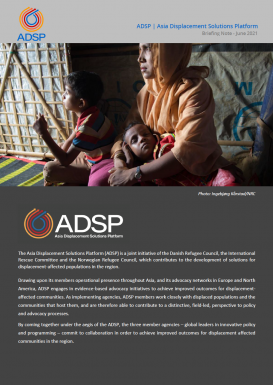Briefing Note: Humanitarian priorities in post-coup Myanmar
On 1 February 2021, Myanmar’s military, the Tatmadaw, deposed Myanmar’s elected government. Alleging widespread fraud in the November 2020 elections, which the Tatmadaw’s proxy Union Solidarity and Development Party lost to the incumbent National League for Democracy (NLD), Tatmadaw leaders announced a one-year state of emergency. Anti-coup protests and an organised Civil Disobedience Movement (CDM) began the following day, spreading across the country in general strikes, public marches, online campaigns and nightly ‘pot-banging’.
As dissent has grown, the Tatmadaw, police and affiliated armed groups have escalated attacks on protestors, strikers, NLD officials, civil society leaders, journalists and other civilians. As of 19 June, 870 people are estimated to have been killed, and 5,000 are estimated to be in detention. Myanmar’s de facto authorities have restricted freedom of movement; blocked popular social media platforms; and limited mobile data, satellite and broadband internet connections. Condemnation of the coup and violence against civilians has been widespread. A growing number of countries have suspended aid to the de facto authorities or imposed targeted sanctions on Tatmadaw leaders, their family members and companies connected to the military.
Myanmar’s economy is failing, and public services are in collapse. Tens of thousands have been displaced as ethnic armed organisations (EAOs)–many of which had been party to a ceasefire agreement prior to the coup–resume fighting the Tatmadaw. Humanitarian actors expect conditions to further deteriorate, threatening additional displacement, deepening economic and food insecurity, and causing widespread shortages of health care and other essential services.
This Briefing Note highlights three key priorities for responding to Myanmar’s worsening humanitarian situation: (1) scaling up support to meet to the needs of internally displaced and refugee populations; (2) removing or circumventing barriers to humanitarian access and services and (3) redirecting development assistance to support humanitarian activities while monitoring the humanitarian impacts of international sanctions.
Please see the full briefing note here.

